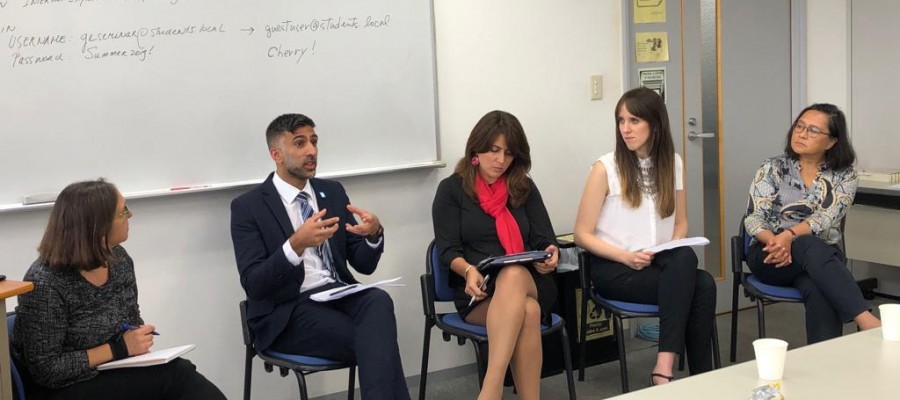G20 Side Event, Osaka

Members of the Global NPO Coalition organised an event on the sidelines of the G20 in Osaka in June, which took the form of a dialogue between the FATF, the World Bank, the banking sector, and Japanese and international NPOs on issues of financial access. The FATF stressed the following:
- the importance of conducting a risk assessment of NPOs for both banks and governments (the FATF's new TF Risk Assessment Guidance is crucial in this regard)
- that the risk-based approach is meant to be a customer-by-customer approach
- the two dimensions of de-risking, which include
- NPOs not being able to access bank accounts, and
- NPOs not being able to transfer monies to high-risk and sanctioned countries
- that the key to de-risking is 'a failure to understand risk at the highest levels', noting a major drop in access to intermediary banks in 'problem countries'
- the FATF evaluators are looking at de-risking, asking the right questions, speaking with NPOs, and recommending appropriate measures
- the importance of determining residual risk or net risk in the NPO sector (any risk that remains once inherent risk has been determined and after taking into account the mitigating measures already in place to address such risk)
- the importance of capacity building and outreach by the government to address any residual risk in the sector (and not repression of the sector)
- that the Global NPO Coalition and FATF need to work together to ensure that the new TF Risk Assessment guidance is being implemented the importance of receiving input from NPOs at the beginning of the Mutual Evaluation Process, including on financial inclusion
- that it is keen to explore the utility of Digital Ids and Virtual Assets to mitigate financial access difficulties
- NPOs, among others, are faced with the importance of multi-stakeholder dialogue (NPOs/governments/banks), and that the goal of this is that 'everyone has confidence in the others’ risk assessments'.




